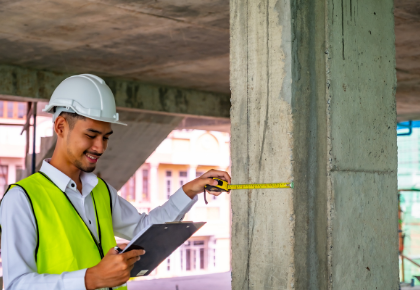Monday October 04, 2021
Why is it important to understanding preventative vs deferred maintenance?
 A community association doesn’t come equipped with a crystal ball, so board members can see their community’s future. However, reserve studies, paired with preventative maintenance plans and predictive maintenance reviews are close to predicting the future of your building’s components. These three aspects of community preventive maintenance work together to identify the best ways to care for your community and make sure the funds are there to pay for the care when needed.
A community association doesn’t come equipped with a crystal ball, so board members can see their community’s future. However, reserve studies, paired with preventative maintenance plans and predictive maintenance reviews are close to predicting the future of your building’s components. These three aspects of community preventive maintenance work together to identify the best ways to care for your community and make sure the funds are there to pay for the care when needed.During a reserve study, the experts predict when items will need to be replaced based on their current condition and average lifespan. Reserve studies assume that components will reach their maximum useful life. However, if a preventative maintenance plan isn’t implemented along with your reserve study, it is highly unlikely some components will ever reach their maximum useful life. The problem comes about when homeowner associations try to reduce expenses by not performing needed work – or by deferring maintenance for years. Unfortunately, neglecting maintenance can cost your association much more in the long run, as the following example illustrates.
The impact of deferred maintenance
A community association had a mechanical component that the reserve study estimated would last another 10 years. The replacement cost was estimated at $30,000, so the board planned to save $3,000 per year to the reserve fund for its replacement. But the board didn’t implement the regular planned maintenance for that equipment, and it failed after seven years. The community was impacted in several ways:- Lack of preventive maintenance cut off three years from its useful life.
- The association had to spend $30,000 three years earlier than expected.
- The reserve fund wasn’t fully funded, so the association had to take a loan to cover the remainder of the replacement cost.
Preventive maintenance step by step

If your community has a dedicated engineer, they should have checklists of regular preventative maintenance schedules. Depending on the complexity of the building’s structures, the engineers may use recommended maintenance checklists for each component. The documents can be broken down by Daily, Weekly, Monthly, Quarterly, Semi-annually, and Annually completed tasks. For example, a community’s engineer could follow one standard operating procedure checklist for the boiler, one for the chiller, one for fire safety equipment, etc. This engineer should also meet regularly with the property manager to review the day’s issues and give prompt warning of any areas of concern.
Certain diagnostic techniques are integral to gaining the data needed to create a predictive maintenance schedule. These include:
- Vibration analysis, which measures the vibration of moving parts in machines. Monitoring these vibrations, and their changes, can help you anticipate failures.
- Thermal imaging, which does not necessitate equipment shutdown.
- Laser shaft alignment, technology that will keep pumps, motor shafts and impellers from damaging and misalignments to occur.
- Trends analysis, which recognizes potential areas of fault in equipment.
- Oil sampling and analysis, which identifies area of wear, along with the lubricating ability of equipment oil.
Funding the reserves
Armed with all this information, the board can make reasonable decisions about how to fund the reserves for the community. Ignoring or minimizing the importance of adequately funding and planning for reserves is a huge disservice to the residents. While it can be tempting to avoid raising assessments to pay for projected expenses, this can become a disaster when repairs are required, and the community simply doesn’t have the money to pay for them. Consider how much it would affect your long-term operational costs if the system went down, along with how many residents would be affected in the instance of a system failure. As shown in the example above, unexpected failure affects residents as well as other planned maintenance and the community’s financial future.
Boards have a fiduciary duty to make the best financial decisions for the community’s assets, and a strong property management company can provide experts to help them make the right choices. An experienced community management company can guide you in many areas: finding a reserve study specialist, following recommended maintenance schedules and educating boards and residents about effective budgeting.
With decades of experience and our database of Illinois inspectors and experts, FirstService Residential can help your homeowner association engineer a proactive program that maximizes savings and minimizes surprises.
Contact us today to learn more.